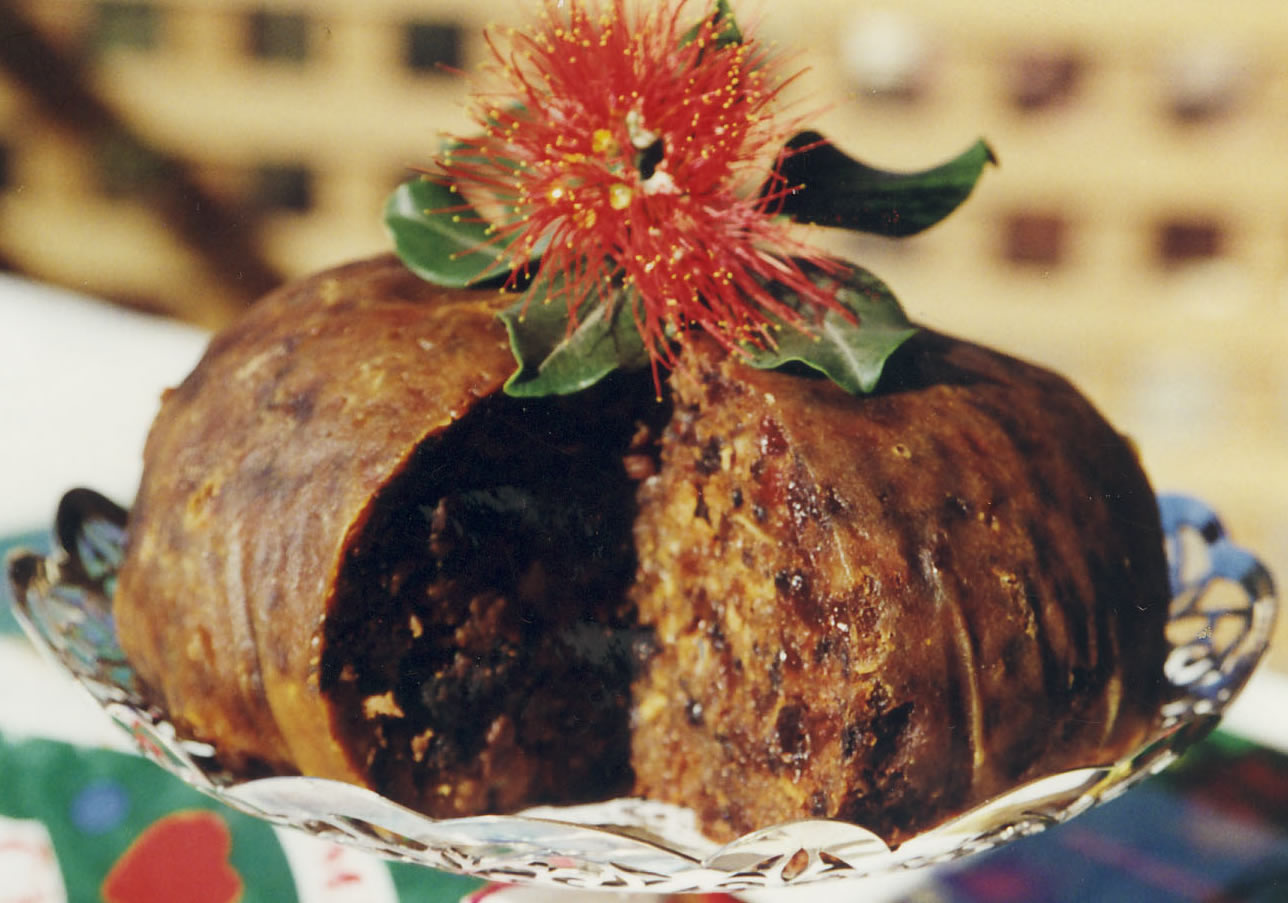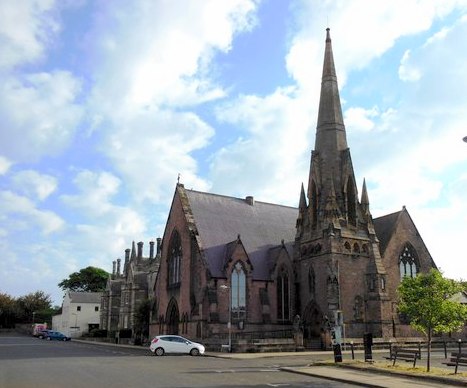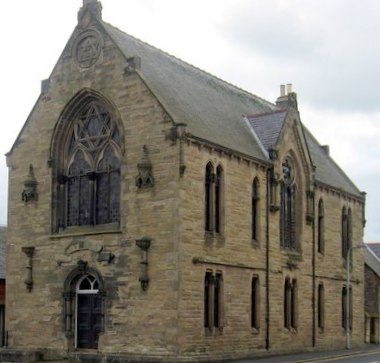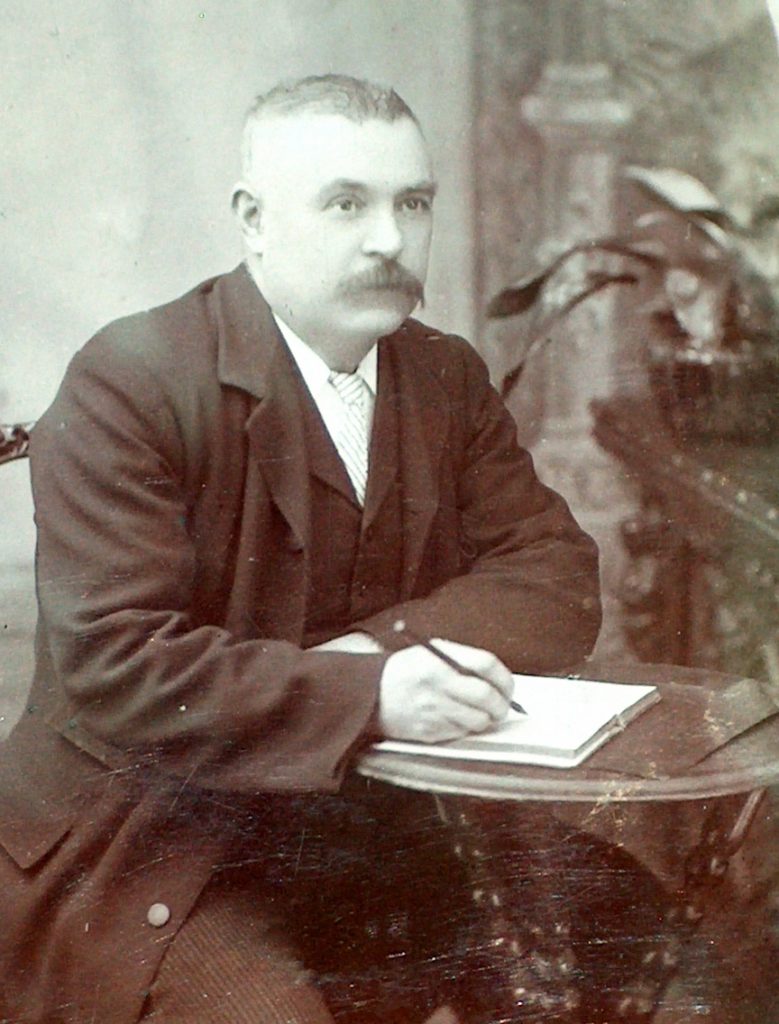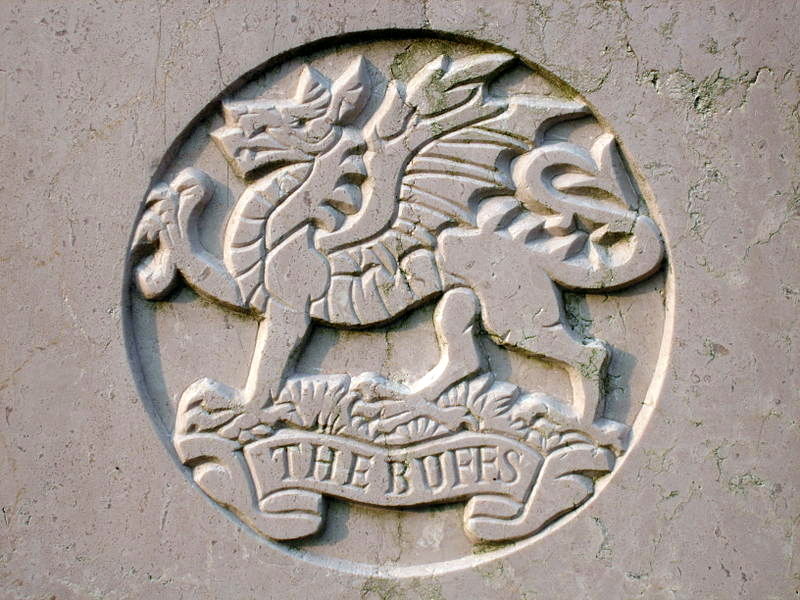
BERWICK ADVERTISER, 29 NOVEMBER 1918
LETTERS TO THE EDITOR
LEST WE FORGET
Sir,- Mr Thomas Grey’s most advocacy, in your issue of 22nd inst., for the erection of a permanent and public memorial to the memory of our brave and noble Tweedmouth heroes, who have given their lives in the cause of right and justice during the terrible world-war just ended must convince everyone that the accomplishment of such a worthy object is highly desirable, and that their names must be engraven in a conspicuous and lasting form so that future generations may honour them and their noble deeds and sacrifices.

Mr Grey invites the opinion of Tweedmouth on the subject, and as a humble member of the community, I, for my part, would suggest that a marble, or granite drinking fountain, of suitable and symmetrical size be erected in a conspicuous part of the town (probably in a broad part of Main Street), with the figure which is symbolical of “Victory” on the top of it, and the names of our heroes be engraven on the centre portion. Mr Grey should himself select a committee to take the matter in hand -Yours faithfully. EDWARD BREWIS Tweedmouth, November 25th, 1918.
RAILWAYMEN’S VISIT TO THE BATTLEFIELDS
On the invitation of the Minister of Munitions, Mr Geo. Dodds, Woolmarket, Berwick, recently visited the battlefields in France along with other representatives of the Railwaymen in the North of England. They were conducted during the tour by Staff Major Lord Greville.

On arriving in France the party was initiated into the mysteries of the anti-gas department, supplied with gas masks and shrapnel helmets, and were put through the six different movements of the drill, and then put into a hut filled with gas to test the efficiency of the masks. The first place of interest they visited was an establishment covering any amount of ground and dealing with the salvage of the battlefields from a button to a 15 inch gun. They were taken through the different shops where the bulk of the work is done by German prisoners and Chinese labourers, supervised by our own non-commissioned officers. The system was explained, and it was shown that this factory alone must have saved the country many millions of pounds. In several of the departments French girls are employed but on the day of Mr Dodds’s visit they took French leave and paraded the streets singing ( Mr Dodd’s party being greeted by the British “Hurrah!”) owing to a rumour that Peace had been declared. They proceeded to a bakery busy in supplying the British, French and Belgian troops with bread. Here the Chinese do the labouring, a continuous procession of coolies carrying flour to the troughs, but our own Tommies do the kneading and baking. The output is 400,000 loaves per week.
They also motored out to the largest munition dump in France, the extreme width being ten miles. They were shown the different railway arrangements for dealing with the front line demands, the huge stores capable of holding from 40,000 to 70,000 tons of ammunition each; and the mechanism of each hand grenade and aerial bomb was explained. These bombs range from twenty to 1,660 lbs, and the conductor informed them that an airman dropping one of the latter on to a German Railway Station was forced a thousand feet up into the air by the force of the concussion. The station was of course obliterated.
LOCAL NEWS
On Sunday last Berwick had no supply of gas between the hours of 9 a.m. and 4 p.m. So many of the men at the works were off with influenza that the Gas Company found this necessary, in order to get up a certain amount of reserve stock to prevent any total collapse of lighting during the week. They considered that the withdrawal of supplies during daylight hours on Sunday would cause the least inconvenience to the public. It is no often the gas supply is cut off in the town, but air-raids made it necessary, and once recently we were without a supply of gas when the company were laying a new main in Tweedmouth.
Miss Doris Dodds, who for the past six months has been working in France as a motor ambulance driver, is back in Berwick this week. The work has been hard, but very interesting; weather conditions were often adverse and night duty frequent, but Miss Dodds has enjoyed her time in France. There were 100 motor drivers in the town where she was stationed, and their duties were to convey the wounded to and from the station to the hospitals, clean down their cars and do all running repairs. A fortnight after arriving in France, Miss Dodds came in for an exciting air raid, when the German aeroplanes, flying low, dropped about 160 bombs in a hospital area of three quarters of a mile, where she was stationed. There were many causalities amongst the patients and orderlies, and some of the sisters were also killed. The town was quite unprepared for this raid, no warnings were given, and there were no dug-outs ready. The next night the motor drivers were ordered to take their cars out to a neighbouring wood, and they slept beside them wrapped in army blankets – none too clean, but what matter so long as they were warm. They had to do this for some time as the raids were continued, and they were ultimately given quarters in a neighbouring village. The Germans excused themselves by pointing out that the hospitals were not flying the Red Cross flag, and they did not know what the buildings were. One of their duties was to motor the sisters an doctors out to the neighbouring woods to sleep till 4 a.m., when they were brought back again to hospital for at least an hour’s rest in a bed before going on duy again. Raids continued to be more or less frequent until the Germans were driven out of Zeebrugge, where they had their base; Miss Dodd’s experiences coincide with those of Miss Bishop, who a few weeks ago gave an interesting paper upon her work in France at the same town where Miss Dodds was stationed. Nurse Katie Mackay was also for a time in a hospital there.
The death has occurred in a Military Hospital in Egypt of Sergeant Pickering, late of the 1st K.O.S.B., husband of Mrs Pickering, 20 West Street, Berwick. He had eighteen years’ service and was at one time stationed at the Depot, Berwick. He proceeded to the Dardanelles with the K.O.S.B. in April, 1915, and being wounded in May he was sent to hospital, later doing garrison duty at Alexandria. He leaves a widow and a son aged three and a half years, whom he has never seen. The deepest sympathy is felt for the widow in her great loss.
The great improvement in street lighting has given satisfaction throughout the town, and even in the less frequented back streets there is now the light of incandescent to lead one in the straight path and help in the safe negotiation of door scrapers. Those who altered their classic features by having arguments with the Maclagan Memorial, Scotsgate and sundry corners during the dark nights of last winter will be relieved to feel that many preventable accidents will now be avoided. The unfortunate part about all the accidents was that the authorities who so rigidly enforced the stygean conditions never suffered casualty.
CHRISTMAS MAILS FOR THE BRITISH
ARMIES IN FRANCE, BELGIUM AND ITALY
Letters and parcels intended for delivery to the Italian Expeditionary Force and the British Expeditionary Force by Christmas should be posted so as to reach London before the final dates given below:-

Italian Expeditionary Force, Parcels 9th Dec. and 16th Dec.
British Expeditionary Force, Letters 14h Dec. and 16th Dec.
No parcel for either Force will be accepted at any Post Office after 14th December, until 27th December.

